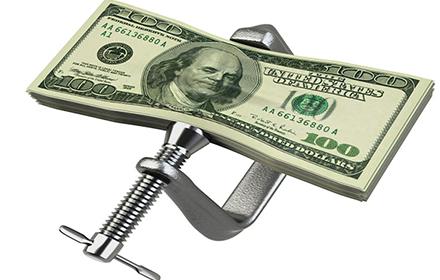
For most people, their only source of income is a 9-to-5 job. Unfortunately, this has become quite a risky way to live. If you lose that one job you have, your entire source of revenue would disappear just like that. Therefore, financial advisors recommend average income earners to diversify and have several avenues of income.
However, some may not see the appeal of laboring away at not one, but several jobs. Particularly if those secondary jobs are part of the gig economy. Is it really worth working part-time jobs in addition to one’s actual job? Here are several reasons why that’s a big yes:
Protection Against Sudden Layoff
While the layoff rate has fallen since the peak to 20.2 percent in 2009, it was still at 13.8 percent in 2016, according to the Bureau of Labor Statistics. The chances of being laid off can increase above the national average in certain sectors, such as the troubled retail sector. In other words, for those employed in the private sector, being laid off is always a possibility.
Once laid off, finding a permanent job can become difficult. There’s always a transition period between job loss and being rehired. What happens to your finances during this in-between period? You could dip into savings, but for how long?
It’s at times like these that a second source of income becomes most useful. The financial devastation that comes from being laid off can be quickly mitigated with a second stream of revenue. You can focus on the job search fully, instead of doing part-time jobs to compensate for lost income.
Build True Wealth
Wealth isn’t determined by the size of your monthly paycheck. You may earn five figures a month. But if you were to end up spending a vast majority of that income, it would become impossible to build wealth.
Wage earners build wealth by saving money and investing. Neither is pragmatic when a person lives from paycheck to paycheck. A single source of income often strains finances. Between healthcare costs, children’s education, and recurring household expenses, there might not be much left to save.
Income from a second line of work can compensate for that. Secondary income can supplement overall income in a way that allows average workers to save for health, education, or vacations. With enough savings, it would be possible to invest in real estate, stocks, and new businesses to build true wealth that lasts.
Cover Rising Health Costs
No one can predict when they’ll get sick or meet with an accident that requires medical attention. But the ever-rising cost of healthcare is a certainty. The average worker in the US spends over $5,000 a year on health insurance, according to Bloomberg, and that number seems to be on the rise.
A secondary or tertiary source of income would naturally increase the monthly cash flow. So the additional burden of health insurance or health-related costs would be bearable for a family. Keep in mind that not all health costs are covered by insurance. You will have to pay out of your own pocket for medical treatments that the insurer refuses to pay for.
Avoid Personal Loans
Personal loans, also known as payday or installment loans are the first steps toward a debt trap. People take out personal loans when they need cash in a hurry. These loans are not that big; the borrowing amount rarely exceeds $1,000. But even a $100 payday loan comes attached to sky-high interest rates. At the end of the year, the loaned $100 could have ballooned into several thousand dollars of debt.
Taking out a payday loan is a last-ditch attempt at acquiring cash. You would never be in such a desperate situation if you had your savings or another source of income. You can earn in cash with a secondary line of income, and easily avoid a scenario that leaves you in debt.
Investors are often told to diversify their portfolios. Wage earners should follow the same logic. Similar to how a single investment is never truly safe from risk, a single source of income isn’t either. More than one stream of income would ensure that your household is protected from common risks like layoffs.
Multiple sources of income increase household cash flow, allowing you to live comfortably within your means. It will protect you against on-the-spot loans and financially safeguard you in case of a health emergency. Moreover, you can use the extra money to build true wealth and become financially independent.
 SU
SU REDDIT
REDDIT







